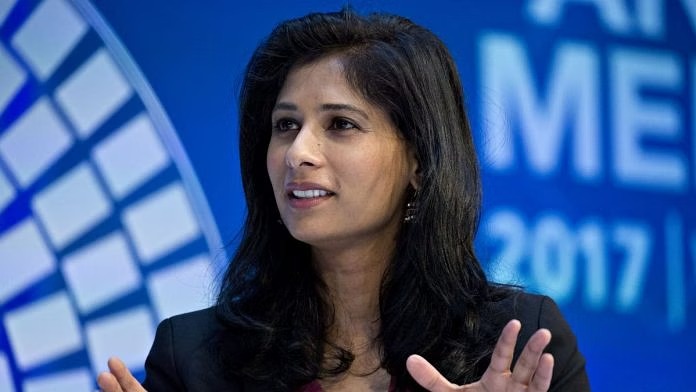
Trade war is tougher threat than COVID for emerging market cenbanks : IMF
WASHINGTON : The shock from trade war brings differential effects for central banks in emerging markets, in contrast with the COVID pandemic, when they could quickly ease monetary policy, the International Monetary Fund’s (IMF) Gita Gopinath said. In an interview with the Financial Times newspaper, the fund’s first Deputy Managing Director said the unpredictable impact of tariffs on developing economies and global markets would make the task of their central bankers harder.
“This time the challenge is going to be greater for them, compared to the pandemic,” she said.
Federal Reserve (Fed) policymakers have been signalling they are not ready to lower interest rates until they are sure tariffs will not further stoke inflation. Some estimates predict the inflation in the U.S. could go up in the short term due to the impact of Trump’s tariffs, which are expected to make goods, from shoes to phones, more expensive for ordinary Americans.
Elsewhere, the Bank of England (BoE) and the European Central Bank (ECB) have pivoted to easing monetary policy as inflation slowed down from the peaks observed in 2022 and due to widely stagnating or low growth.
However, in emerging markets, which are also facing higher U.S. trade barriers, the situation looks “more like a demand shock,” said Gopinath, which means slower inflation and growth.
The situation contrasts with the onset of the pandemic, when most central banks around the world slashed interest rates.
“When we have this kind of a divergence, you could end up with tightening global financial conditions, and emerging markets are particularly sensitive to such changes in global markets,” Gopinath told the FT.
Emerging market currencies and stocks have largely rebounded in the two months since Trump announced his sweeping “reciprocal” tariffs, as investors bet that central banks will be largely free to stimulate their economies despite the risk that higher rates in developed countries will draw capital away.
However, a report from the Organisation for Economic Co-operation and Development (OECD) warned that “the risk of disruptive capital flows has risen in emerging market economies.”
Still, Gopinath noted that “emerging market central banks have built up credibility over time, and several have moved to inflation-targeting frameworks,” which she said was very positive.
She added: “Global factors are still bigger drivers for them compared to advanced economies, and so when we’re entering this environment where we are seeing major shifts in global economic policy, along with the uncertainty, this will present a challenge to them.”

